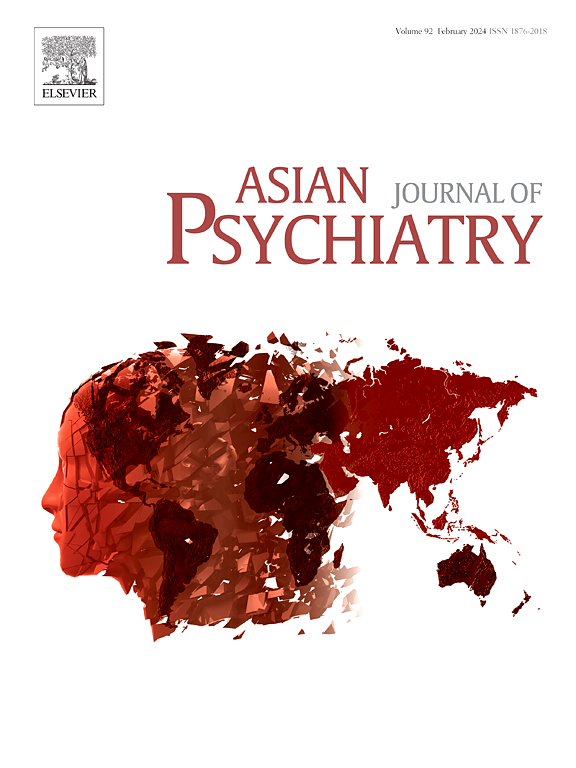The impact of economic crisis on the mental health of children and adolescents: A systematic review
IF 4.5
4区 医学
Q1 PSYCHIATRY
引用次数: 0
Abstract
Introduction
Economic crises significantly affect mental health across individuals, families, and communities, with children and adolescents being especially vulnerable. Financial stress, parental distress, and family conflict can disrupt development and increase emotional, behavioural, and cognitive difficulties. This review uses Bronfenbrenner’s ecological systems theory to examine how economic hardship influences youth mental health through interconnected individual, familial, and societal systems.
Methods
Following PRISMA guidelines, a systematic search was conducted on PubMed and Google Scholar for studies (2015–2025) addressing economic hardship and mental health in children, adolescents, and parents. Inclusion required original research in English or French, with low or moderate risk of bias assessed using the Newcastle–Ottawa Scale (NOS) and its cross-sectional adaptation (NOS-CSS). Of 7104 records, 66 studies met criteria. Findings were grouped into three domains: mental health outcomes, child development, and the parent–child relationship.
Results
Financial hardship was consistently linked to increased rates of depression, anxiety, and substance use, often in a dose-response pattern. Socioeconomic disadvantage worsened access to care and outcomes, especially among the unemployed, less educated, women, and minorities. Youth exposed to economic strain showed higher rates of self-harm and suicide risk. Developmental impact, cognitive, emotional, and physical, was mediated by maternal mental health, parenting, nutrition, and environmental stress. Parental warmth and developmental knowledge emerged as protective factors.
Conclusion
Bronfenbrenner’s framework illustrates how economic crises affect child mental health across ecological layers. Coordinated responses addressing parenting, healthcare access, policy, and early-life support are essential to mitigate long-term harm in vulnerable populations.
经济危机对儿童和青少年心理健康的影响:系统综述
经济危机严重影响个人、家庭和社区的心理健康,儿童和青少年尤其容易受到影响。经济压力、父母的痛苦和家庭冲突会破坏发展,增加情感、行为和认知方面的困难。本综述使用Bronfenbrenner的生态系统理论来研究经济困难如何通过相互关联的个人、家庭和社会系统影响青少年的心理健康。方法遵循PRISMA指南,系统检索PubMed和谷歌Scholar上关于儿童、青少年和父母经济困难与心理健康的研究(2015-2025)。纳入需要英文或法文的原始研究,使用纽卡斯尔-渥太华量表(NOS)及其横截面适应量表(NOS- css)评估低或中等偏倚风险。在7104项记录中,有66项研究符合标准。研究结果分为三个领域:心理健康结果、儿童发展和亲子关系。结果经济困难一直与抑郁、焦虑和药物使用的增加率有关,通常呈剂量-反应模式。社会经济劣势加剧了获得护理的机会和结果,特别是在失业、受教育程度较低、妇女和少数族裔中。面对经济压力的青少年自残和自杀风险的比例更高。发育影响,认知,情感和身体,是介导的产妇心理健康,养育,营养和环境压力。父母的温暖和发育知识成为保护因素。bronfenbrenner的框架说明了经济危机是如何跨生态层面影响儿童心理健康的。在养育子女、获得医疗保健、政策和早期生命支持等方面采取协调一致的应对措施,对于减轻对弱势群体的长期伤害至关重要。
本文章由计算机程序翻译,如有差异,请以英文原文为准。
求助全文
约1分钟内获得全文
求助全文
来源期刊

Asian journal of psychiatry
Medicine-Psychiatry and Mental Health
CiteScore
12.70
自引率
5.30%
发文量
297
审稿时长
35 days
期刊介绍:
The Asian Journal of Psychiatry serves as a comprehensive resource for psychiatrists, mental health clinicians, neurologists, physicians, mental health students, and policymakers. Its goal is to facilitate the exchange of research findings and clinical practices between Asia and the global community. The journal focuses on psychiatric research relevant to Asia, covering preclinical, clinical, service system, and policy development topics. It also highlights the socio-cultural diversity of the region in relation to mental health.
 求助内容:
求助内容: 应助结果提醒方式:
应助结果提醒方式:


